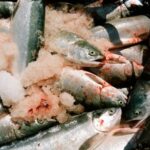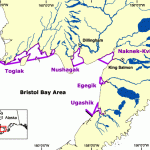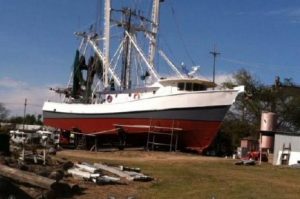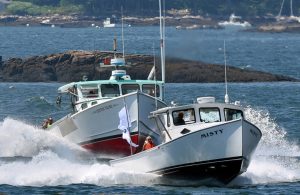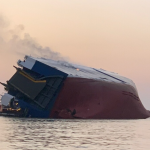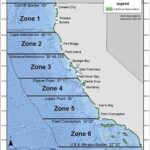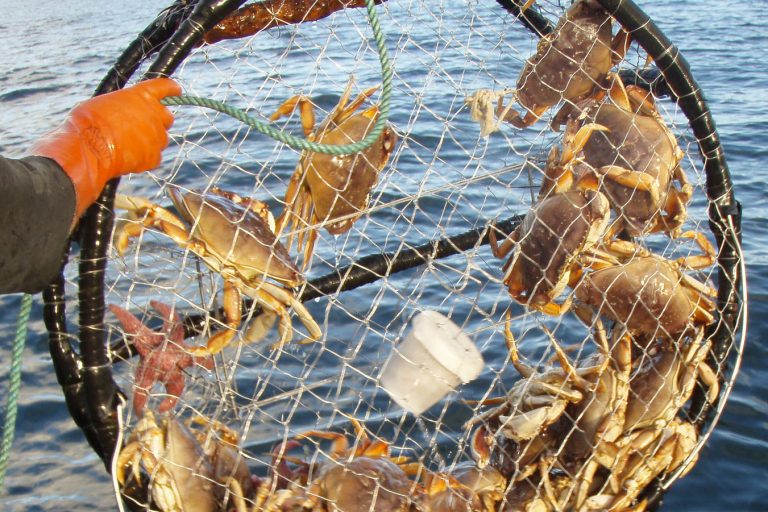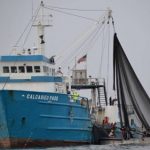Tag Archives: “controlling agreements”
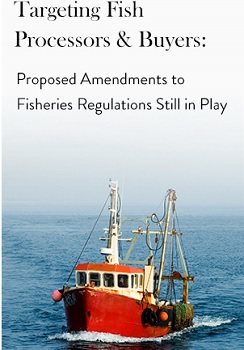
Proposed Fisheries Regulation Amendments Target Fish Processors & Buyers
The Fall 2019 re-election of the Liberal government means the proposed amendments to federal fisheries regulations remain a concern for industry participants.,, However, the government has, to date, not implemented the amendments. The proposed amendments target arrangements that transfer license rights and privileges from license holders to third parties. In the Statement, the Minister notes the perceived narrowness of the definition of “Controlling Agreement”,, McInnes Cooper has prepared this document for information only,, >click to read< 12:27

Ottawa: Ruling that prevents corporate takeover of inshore fishery upheld
In a decision released Friday, the Federal Appeal Court sided with a 2017 Federal Court decision that upheld Ottawa’s right to prevent the corporate takeover of inshore fisheries in Atlantic Canada and Quebec. At issue are controlling agreements used by companies to get around longstanding policies that local fishermen control inshore licences and the profits that come from them. The ruling revolves around the case of Labrador fisherman Kirby Elson, who entered a controlling agreement in 2003 with Quinlan Brothers Ltd. and Labrador Sea Products Inc. that gave the companies total control over every aspect of a licence — even in death. >click to read<
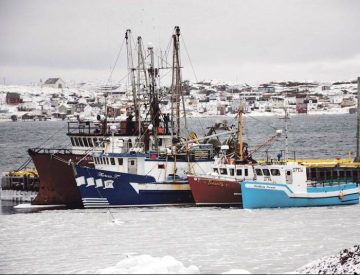
Letter: Fishery corporations kick messaging into high gear
As is evidenced from two recent articles in The Telegram (the letter, Jan. 23 “We need to enhance Atlantic Canada’s fisheries” and the Jan. 26 editorial “Fisheries madness”), the corporate-owned processing and offshore sector is in full fear-mongering and misrepresentation mode. Faced with a minister of Fisheries and Oceans who is willing to speak the truth about the challenges to the inshore fishery, the corporations that have aggressively endeavoured to shape the economics of this fishery for the past 20 years are now being told to play by the rules and they are enraged at the prospect.>click to read< 08:51
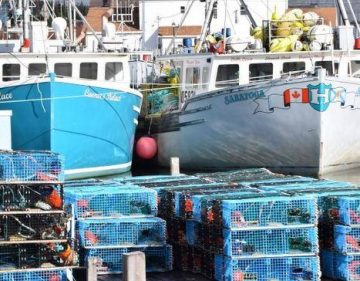
Commentary on Controling Agreements: DFO meddling destabilizes fishermen
I’ve held my own lobster licence since 1973 and it is nonsense to suggest I am anything but an “independent” fisherman. Yet the Department of Fisheries and Oceans is reviewing my licence under the “owner-operator policy.” Under this policy, the owner of a lobster licence is supposed to be independent (as I am) and to benefit most from his licence (as I do). DFO seems to suspect that I am in a so-called “controlling agreement” with Yarmouth Sea Products Ltd. click here to read the story 08:43

Lobster fisherman defends maligned practice of ‘controlling agreements’
The federal government’s attempt to stop corporate control of the lucrative lobster fishery is facing another challenge, and the Nova Scotia fisherman at the centre of the case has taken the rare step of speaking out about it. Hubert Saulnier, 63, is a familiar face on the Meteghan wharf in southwestern Nova Scotia. He has been fishing for more than four decades and has held many positions with the local fishermen’s association. Saulnier is also one of 14 fishermen in a so-called controlling agreement with Yarmouth Sea Products, one of southwest Nova Scotia’s largest lobster buyers. click here to read the story 09:36
Nova Scotia Lobster buyers want ‘above-board’ investment mechanism to secure supply
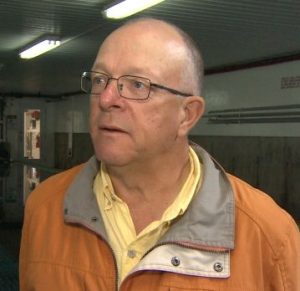 Next month, the season opens in Canada’s biggest lobster fishery but even before the first trap hits the water, there’s big news in southwestern Nova Scotia. It is a proposal from a coalition of prominent lobster dealers who want the federal government to grant them the authority to give loans to fishermen like a bank or any other financial institution. “They could put out the money, they would hold the mortgage and then they would have a business arrangement with [the] person owning the licence where they would, I assume, buy the product,” said Robert Thibault, spokesperson for the newly formed Western Nova Scotia Lobster Dealers Coalition. click here to read the story 12:40
Next month, the season opens in Canada’s biggest lobster fishery but even before the first trap hits the water, there’s big news in southwestern Nova Scotia. It is a proposal from a coalition of prominent lobster dealers who want the federal government to grant them the authority to give loans to fishermen like a bank or any other financial institution. “They could put out the money, they would hold the mortgage and then they would have a business arrangement with [the] person owning the licence where they would, I assume, buy the product,” said Robert Thibault, spokesperson for the newly formed Western Nova Scotia Lobster Dealers Coalition. click here to read the story 12:40
Op-Ed: DFO messes with success of age-old lobster businesses
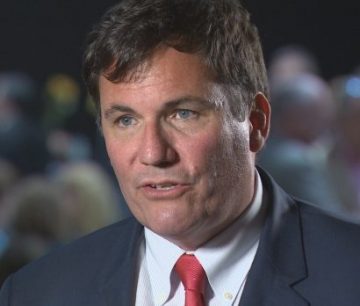 I’ve been fishing out of Woods Harbour for 45 years now, and I want to tell people about what’s kept the fishery going here — in good times and bad. This feels important today because, at a time when the lobster fishery is so successful, the Department of Fisheries and Oceans (DFO) wants to change policies in a way that would hurt our area’s economy. Let me tell my story first. click here to read the story 09:35
I’ve been fishing out of Woods Harbour for 45 years now, and I want to tell people about what’s kept the fishery going here — in good times and bad. This feels important today because, at a time when the lobster fishery is so successful, the Department of Fisheries and Oceans (DFO) wants to change policies in a way that would hurt our area’s economy. Let me tell my story first. click here to read the story 09:35
Controlling Agreements – DFO cracks down on fishing licences it says are fronts for corporations
 Canada’s Department of Fisheries and Oceans is taking action against more Atlantic fishermen it says are holding inshore fishing licences as fronts for corporations. The department says it has notified a number of fishermen in “controlling agreements” that their licences are forfeit. “There are a number of cases that we’ve told the individuals that we believe they are in a controlling agreement. We’ve told them we believe their licences are not eligible for renewal,” says Morley Knight, assistant deputy minister for DFO. Such licences are known in the industry as company licences. A fisherman holds the inshore licence — as required by DFO — but in name only. click here to read the story 07:59
Canada’s Department of Fisheries and Oceans is taking action against more Atlantic fishermen it says are holding inshore fishing licences as fronts for corporations. The department says it has notified a number of fishermen in “controlling agreements” that their licences are forfeit. “There are a number of cases that we’ve told the individuals that we believe they are in a controlling agreement. We’ve told them we believe their licences are not eligible for renewal,” says Morley Knight, assistant deputy minister for DFO. Such licences are known in the industry as company licences. A fisherman holds the inshore licence — as required by DFO — but in name only. click here to read the story 07:59
Move aimed at halting backdoor corporate takeover of inshore fisheries – Corporate interests fighting back click here to read the story 12:48
Labrador fisherman’s lawyers fight to keep his “controlling” agreement with fish processor
 A lawyer for a Labrador snow crab fisherman who had his fishing licence stripped by the federal minister of fisheries said the minister had no authority to do so. Kirby Elson, 62, lost his licence in 2015 because he refused to exit a controlling agreement with two Newfoundland and Labrador fish companies that gave total control of the licence and its wealth to the companies. Byron Shaw, one of Elson’s lawyers, argued Tuesday the minister of fisheries has no authority to interfere in a contract that transfers wealth between a harvester and a third party. He said the policy the Department of Fisheries and Oceans (DFO) is enforcing has nothing to do with the management of fish stocks. The case opened Tuesday at the Federal Court of Canada and is expected to last two days. continue reading the story here Stakes of inshore fisheries case are ‘absolutely massive,’ says observer, Why people are watching this case? continue reading the story here 08:04
A lawyer for a Labrador snow crab fisherman who had his fishing licence stripped by the federal minister of fisheries said the minister had no authority to do so. Kirby Elson, 62, lost his licence in 2015 because he refused to exit a controlling agreement with two Newfoundland and Labrador fish companies that gave total control of the licence and its wealth to the companies. Byron Shaw, one of Elson’s lawyers, argued Tuesday the minister of fisheries has no authority to interfere in a contract that transfers wealth between a harvester and a third party. He said the policy the Department of Fisheries and Oceans (DFO) is enforcing has nothing to do with the management of fish stocks. The case opened Tuesday at the Federal Court of Canada and is expected to last two days. continue reading the story here Stakes of inshore fisheries case are ‘absolutely massive,’ says observer, Why people are watching this case? continue reading the story here 08:04
Fisherman Kirby Elson’s legal challenge of inshore fishery rules is back on
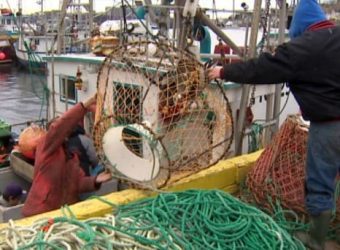 A Labrador fisherman who launched a legal challenge of rules for Atlantic Canada’s inshore fishery only to back away from litigation last week has had another change of heart. Lawyers for Kirby Elson have notified the Federal Court that he will be proceeding with his case, after all. Elson’s legal challenge is widely seen as a test case for Canada’s ban on controlling agreements in the inshore fishery. Elson, of Cartwright, N.L., did not explain why he changed course in a letter to the Federal Court. “I have reconsidered this matter and I have decided I wish to proceed. Please accept this letter as a retraction of my letter dated Jan. 10, 2017,” Elson wrote in a Jan. 12 letter, which was made public Monday. Read the story here 16:54
A Labrador fisherman who launched a legal challenge of rules for Atlantic Canada’s inshore fishery only to back away from litigation last week has had another change of heart. Lawyers for Kirby Elson have notified the Federal Court that he will be proceeding with his case, after all. Elson’s legal challenge is widely seen as a test case for Canada’s ban on controlling agreements in the inshore fishery. Elson, of Cartwright, N.L., did not explain why he changed course in a letter to the Federal Court. “I have reconsidered this matter and I have decided I wish to proceed. Please accept this letter as a retraction of my letter dated Jan. 10, 2017,” Elson wrote in a Jan. 12 letter, which was made public Monday. Read the story here 16:54
Controlling Agreements – To fish or control?
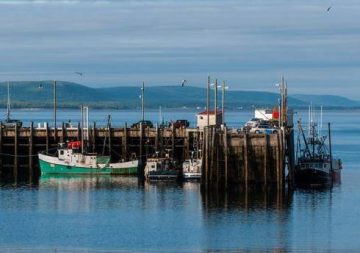 On Nov. 14, Nova Scotia fisherman Graeme Gawn told a Parliamentary committee that “thousands of inshore” fishermen have been “disenfranchised from their traditional fisheries.” Mr. Gawn was referring to the fact that many fishermen have yielded control of their licences to corporations. The consolidation of inshore licences is supposedly illegal. Under Canada’s Policy for Preserving the Independence of the Inshore Fleet in Canada’s Atlantic Fisheries, the holders of individual (owner-operator) fishing licences are supposed to harvest and sell their own catch. As former Fisheries and Oceans Minister Gail Shea stated, the policy is designed to “ensure that inshore fish harvesters remain independent, and that the benefits of fishing licences flow to Atlantic coastal communities.” It doesn’t always work out that way. Read the op-ed here 09:51
On Nov. 14, Nova Scotia fisherman Graeme Gawn told a Parliamentary committee that “thousands of inshore” fishermen have been “disenfranchised from their traditional fisheries.” Mr. Gawn was referring to the fact that many fishermen have yielded control of their licences to corporations. The consolidation of inshore licences is supposedly illegal. Under Canada’s Policy for Preserving the Independence of the Inshore Fleet in Canada’s Atlantic Fisheries, the holders of individual (owner-operator) fishing licences are supposed to harvest and sell their own catch. As former Fisheries and Oceans Minister Gail Shea stated, the policy is designed to “ensure that inshore fish harvesters remain independent, and that the benefits of fishing licences flow to Atlantic coastal communities.” It doesn’t always work out that way. Read the op-ed here 09:51
Controlling Agreements – Future of N.S. fishery hinges on federal court appeal
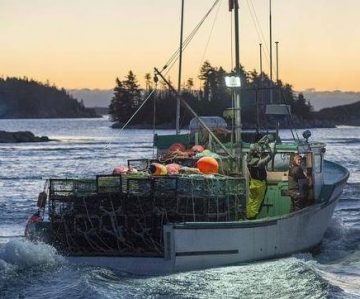 The president of a Nova Scotia fishermen’s union is hopeful a federal court appeal in early 2017 will fail in its challenge of a ministerial decision to enforce policies insulating Atlantic Canada’s inshore fishery from corporate interests. “It’s also our hope that the policy, as well as the minister’s power to regulate the industry for social, cultural and economic considerations, gets strengthened under the Fisheries Act,” , president of the Maritime Fisherman’s Union Local 9 in Meteghan, told the Chronicle Herald in an interview. Enacted in 2007, the aim of Preserving the Independence of the Inshore Fleet in Canada’s Atlantic Fisheries is to enforce the owner-operator and fleet separation policies established in 1979 by Roméo LeBlanc — father of current fisheries minister Dominic LeBlanc — so that inshore fish harvesters remain independent, allowing the profit of fishing licences to flow to fishers and Atlantic coastal communities. Read the article here 13:19
The president of a Nova Scotia fishermen’s union is hopeful a federal court appeal in early 2017 will fail in its challenge of a ministerial decision to enforce policies insulating Atlantic Canada’s inshore fishery from corporate interests. “It’s also our hope that the policy, as well as the minister’s power to regulate the industry for social, cultural and economic considerations, gets strengthened under the Fisheries Act,” , president of the Maritime Fisherman’s Union Local 9 in Meteghan, told the Chronicle Herald in an interview. Enacted in 2007, the aim of Preserving the Independence of the Inshore Fleet in Canada’s Atlantic Fisheries is to enforce the owner-operator and fleet separation policies established in 1979 by Roméo LeBlanc — father of current fisheries minister Dominic LeBlanc — so that inshore fish harvesters remain independent, allowing the profit of fishing licences to flow to fishers and Atlantic coastal communities. Read the article here 13:19
Small-town fisherman takes on Ottawa – Kirby Elson says controlling agreements let him operate his fishing vessel
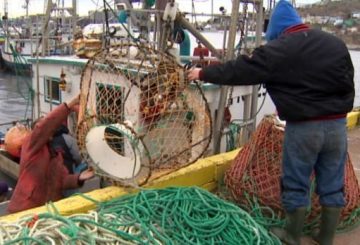 A fisherman from a small fishing town in Labrador has launched a legal challenge that could overturn decades-old federal policies in hopes of preserving independent inshore fisheries in Atlantic Canada. Kirby Elson of Cartwright, N.L., applied in June for a judicial review of a 2015 decision by the federal fisheries minister to take away his commercial fishing licences. Elson, 61, had refused to obey a DFO requirement that he exit a so-called controlling agreement with two Newfoundland and Labrador fish processors: Quinlan Brothers Ltd. and Labrador Sea Products Inc. Under the March 2003 agreement, the companies financed Elson’s snow crab licence, provided the vessel and crew, paid the insurance and covered vessel maintenance. Elson landed and sold his fish at the direction of the processors. The agreement stipulated he could not transfer the licence without company permission. Even in death, Elson’s estate was required to transfer the licence to a designate of the processors. Read the rest of the story here 07:53
A fisherman from a small fishing town in Labrador has launched a legal challenge that could overturn decades-old federal policies in hopes of preserving independent inshore fisheries in Atlantic Canada. Kirby Elson of Cartwright, N.L., applied in June for a judicial review of a 2015 decision by the federal fisheries minister to take away his commercial fishing licences. Elson, 61, had refused to obey a DFO requirement that he exit a so-called controlling agreement with two Newfoundland and Labrador fish processors: Quinlan Brothers Ltd. and Labrador Sea Products Inc. Under the March 2003 agreement, the companies financed Elson’s snow crab licence, provided the vessel and crew, paid the insurance and covered vessel maintenance. Elson landed and sold his fish at the direction of the processors. The agreement stipulated he could not transfer the licence without company permission. Even in death, Elson’s estate was required to transfer the licence to a designate of the processors. Read the rest of the story here 07:53
Controlling Agreements – Who owns the fishing licence?
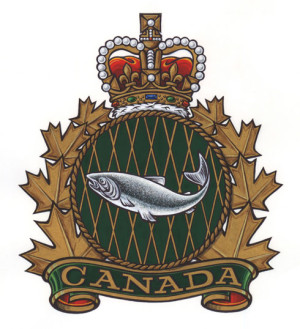 According to an official from the Department of Fisheries and Oceans (DFO), controlling agreements in the inshore fishing fleet on Canada’s East Coast are almost a thing of the past. In 2007, DFO asked fishers throughout the region to declare whether or not they had such agreements. Those who declared themselves to be party to such deals were given a deadline, 2014, to get out of the agreements. Morley Knight, Department of Fisheries and Oceans says about 700 fishers declared controlling agreements and almost all of them have complied with the department’s policy. He added that since 1979, the department’s policy regarding controlling agreements has been clear. A policy to preserve the owner/operator rule — simply that the holder of a commercial fish licence is the person who has control of the management and operation of the fishing enterprise — was enacted in 1979, during the tenure of former fisheries minister Romeo LeBlanc. Still, many fishers entered into agreements with third parties — fish processing companies and other business enterprises — that saw control of the fishing enterprise go to those companies. Read the story here 10:29
According to an official from the Department of Fisheries and Oceans (DFO), controlling agreements in the inshore fishing fleet on Canada’s East Coast are almost a thing of the past. In 2007, DFO asked fishers throughout the region to declare whether or not they had such agreements. Those who declared themselves to be party to such deals were given a deadline, 2014, to get out of the agreements. Morley Knight, Department of Fisheries and Oceans says about 700 fishers declared controlling agreements and almost all of them have complied with the department’s policy. He added that since 1979, the department’s policy regarding controlling agreements has been clear. A policy to preserve the owner/operator rule — simply that the holder of a commercial fish licence is the person who has control of the management and operation of the fishing enterprise — was enacted in 1979, during the tenure of former fisheries minister Romeo LeBlanc. Still, many fishers entered into agreements with third parties — fish processing companies and other business enterprises — that saw control of the fishing enterprise go to those companies. Read the story here 10:29
DFO cracks down on secret fishing licence deals
 Canada’s Department of Fisheries and Oceans says it’s cracking down on so-called “controlling agreements” that result in fishermen holding a fishing licence in name only. Morley Knight, the department’s manager for the Maritimes, said five licence-compliance reviews have been completed in the region and other cases are ongoing. Controlling agreements allow individuals or corporations other than the licence holder to secretly control the use of the licence. They allow companies to get around DFO’s owner-operator policy, which is meant to ensure the independence of Atlantic Canada’s inshore fishery. Read the rest here 08:11
Canada’s Department of Fisheries and Oceans says it’s cracking down on so-called “controlling agreements” that result in fishermen holding a fishing licence in name only. Morley Knight, the department’s manager for the Maritimes, said five licence-compliance reviews have been completed in the region and other cases are ongoing. Controlling agreements allow individuals or corporations other than the licence holder to secretly control the use of the licence. They allow companies to get around DFO’s owner-operator policy, which is meant to ensure the independence of Atlantic Canada’s inshore fishery. Read the rest here 08:11


































